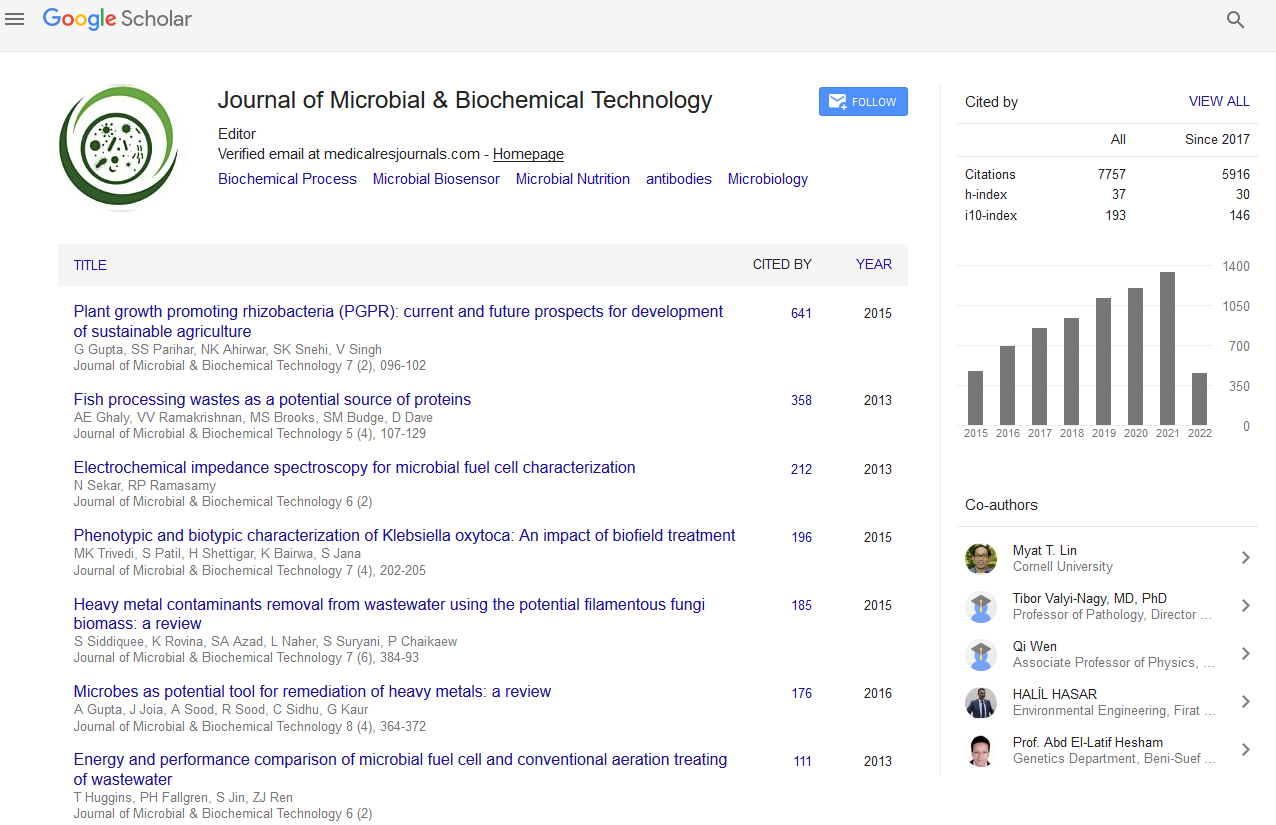PMC/PubMed Indexed Articles
Indexed In
- Academic Journals Database
- Genamics JournalSeek
- Academic Keys
- JournalTOCs
- China National Knowledge Infrastructure (CNKI)
- Scimago
- Access to Global Online Research in Agriculture (AGORA)
- Electronic Journals Library
- RefSeek
- Directory of Research Journal Indexing (DRJI)
- Hamdard University
- EBSCO A-Z
- OCLC- WorldCat
- SWB online catalog
- Virtual Library of Biology (vifabio)
- Publons
- MIAR
- University Grants Commission
- Geneva Foundation for Medical Education and Research
- Euro Pub
- Google Scholar
Useful Links
Share This Page
Journal Flyer

Open Access Journals
- Agri and Aquaculture
- Biochemistry
- Bioinformatics & Systems Biology
- Business & Management
- Chemistry
- Clinical Sciences
- Engineering
- Food & Nutrition
- General Science
- Genetics & Molecular Biology
- Immunology & Microbiology
- Medical Sciences
- Neuroscience & Psychology
- Nursing & Health Care
- Pharmaceutical Sciences
New way to develop mixture of lacticleavens and powder of cardoon flowers (Cynara cardunculus) to produce yoghurt: Approach to immobilization
World Congress and Expo on Applied Microbiology
August 18-20, 2015 Frankfurt, Germany
Benahmed Djilali Adiba1, Bedrani Fatiha1, Belkhir Fatiha1 and Raman yakout2
1University Mouloud Mammeri Tizi-Ouzou, Algeria 2National School of Agronomy (ENSA), Algeria
Scientific Tracks Abstracts: J Microb Biochem Technol
Abstract:
The principal objective of this study is to develop a combination between lactic leavens (Lactobacillus thermophilus) and the powder of cardoon flowers (Cynara cardunculus) and their application on yoghurt. The coagulation of milk was optimized by using the two coagulant agents (with a fresh and immobilized state). The results obtained reveal that a quantity of 0.3 g of the powder of cardoon flowers has a speed of very interesting coagulation (2.55 min) in comparison with the use of the mixture optimized M2 (75% of powder ofcardoonflowersand lactic leavens 25%) and the optimized quantity of the leavens (0.1 g) with respectively speeds of coagulation (3.6 min and 22.58 min). The immobilization of the various coagulant agents�?? improves the speed of milk coagulation. Indeed, a quantity of 6 g of the beads prepared from the powder of cardoon flowers shows a very fast speed (1.06 min) in comparison with the same quantity of the beads prepared starting from the mixture M2 (3.71 min) and the immobilized leavens (73 min). The beads prepared starting from the powder of cardoon flowers and the mixture M2 can completely substitute the immobilized lactic leavens according to the matrix of similarity (similarity of 70%). Moreover, the beads containing the powder of cardoon flowers improve on the one hand, the speed of coagulation of the yoghurt (one hour and 15 min) in comparison with yoghurt prepared at basis of the immobilized leavens (four hours and 30 min) and on the other hand, the rheological properties were ameliorated (smooth structure and the absence of syneresis phenomenon).
Biography :
BENAHMED DJILALI adiba has completed his PhD at the age of 35 years from Algeria University of Boumerdes. He is teacher in the University of Mouloud Mammeri of Tizi-Ouzou.


